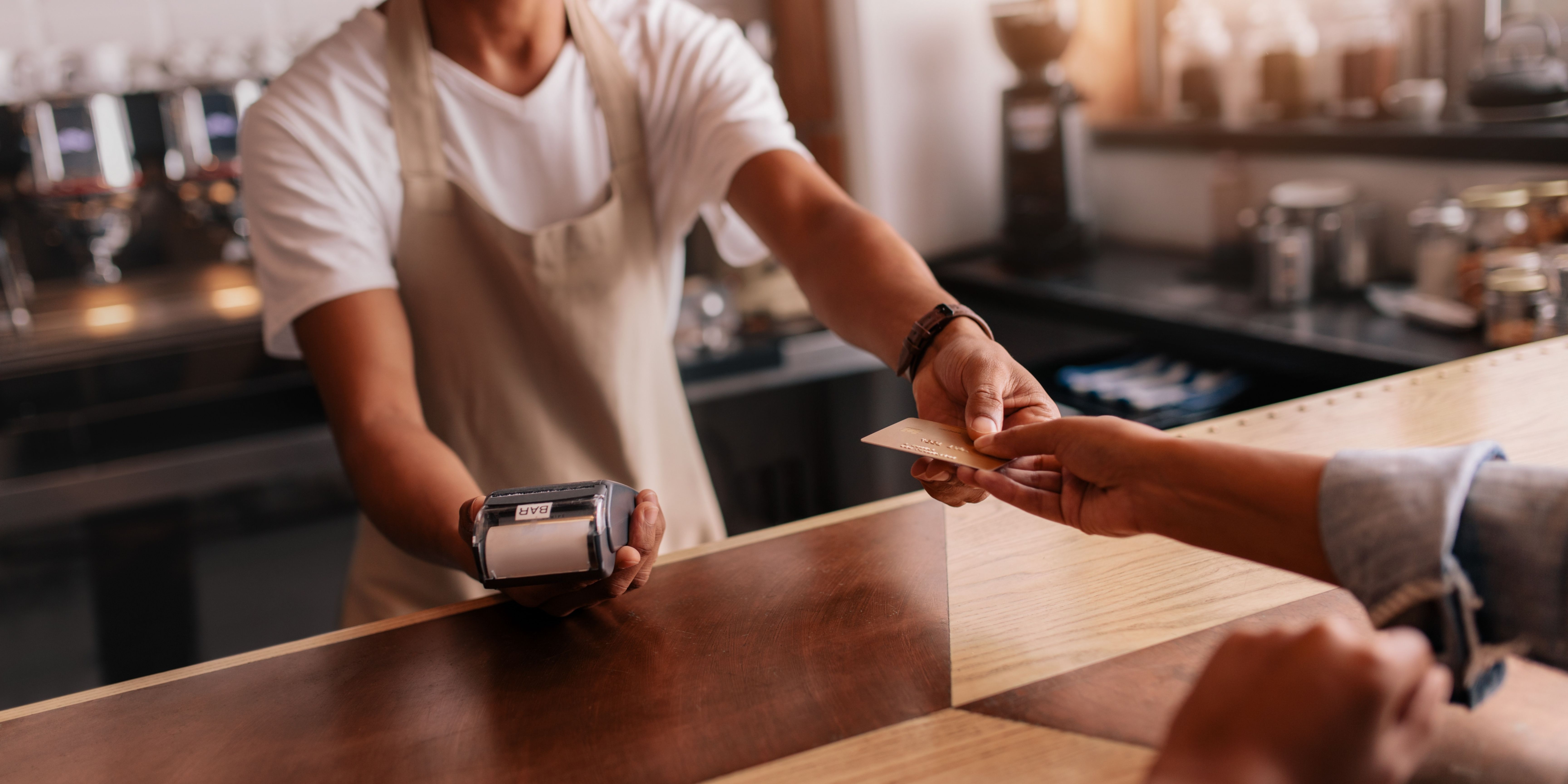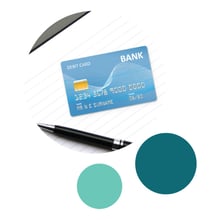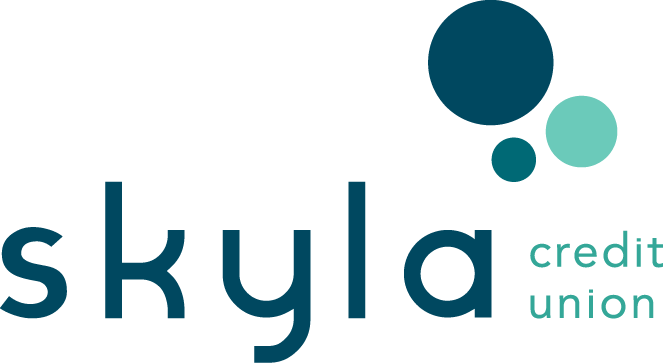What Is a Debit Card?

If you're like most people, you probably use your debit card for everything from buying coffee to paying rent. But do you really know what a debit card is and how it can benefit you if used correctly? If you have a checking account, then you probably already have a debit card. But just in case you're new to the game or need a refresher, let's break it down:
what is a debit card & how does it work? 
Your debit card is linked to your checking account and allows you to make purchases without using cash or writing a check (although some older merchants may still require that). Basically, a debit card is a plastic replica of your checkbook.
Most newer debit cards also come with cool perks like cash back or rewards points. Some also have ATM access and give you access to get cash back from most merchants, both of which allow you to avoid making a trip to the bank anytime you need some cash!
why should i use a debit card?
The main benefit of using a debit card is that it can help you keep track of your spending and avoid debt. When used correctly, a debit card can be a great tool for managing your finances. However, if you're not careful, you could end up in debt or without any access to funds when you need them most.
In order to use a debit card, the cardholder must first have an active bank checking account. The debit card will be linked to the cardholder's bank account and can be used anywhere that Visa or Mastercard is accepted. When making a purchase, the cardholder simply needs to present their debit card and enter their PIN personal identification number .
The funds for the purchase will then be transferred from the cardholder's bank account to the merchant's account immediately. If the cardholder does not have enough funds in their account to cover the purchase, the transaction will be declined.
Debit cards can be used anywhere that credit cards are accepted, including online retailers and brick-and-mortar stores.
Psst... Even though debit cards can be used anywhere that credit cards are accepted, the two cards are not the same. Credit cards require the cardholder to pay back the amount of money borrowed, while debit cards quickly transfer funds from the cardholder's bank account.
what is my debit card pin?
Your PIN is a Personal Identification Number. This PIN is used to authenticate the cardholder's identity when making debit card transactions with a merchant or when withdrawing / depositing cash at an ATM.
In most cases, the debit card issuer will provide the cardholder with a document that includes instructions on how to choose and activate their PIN. In some cases, the cardholder may be able to select their PIN online or over the phone.
QUICK TIP: Once the PIN has been chosen, it is important to keep it confidential and not to write it down or store it in a place where it could be easily accessed by others. |
what are the benefits & risks of a debit card?
benefits of a debit card
- Not a card that will cause you to go into debt. You're only spending the available funds that's in your account at the financial institution.
- Debit cards can be used at a ton of places. They're linked to the cardholder's checking account and can be used anywhere that credit cards are accepted.
- You won't accrue interest on purchases you make (unlike credit cards)
- Budgeting tool: They can also help cardholders to stay within their budget by only allowing them to spend what they have available in their account.
- Easy access to cash: Debit cards allow cardholders to easily access cash from ATMs. This is convenient for those who need cash for everyday expenses or unexpected emergencies.
- Purchase protection: Many debit cards offer purchase protection, which means that cardholders are protected against fraudulent or unauthorized charges. This can give peace of mind when making purchases, both online and in person.
- Rewards programs: Some debit cards offer rewards programs, which allow cardholders to earn points or cash back on purchases. This can be a great way to save money on everyday expenses, as well as earn discounts on travel and other expenditures.
risks of a debit card
- Your account info could be at risk. Debit cards are linked directly to your checking account, which means that if your information is compromised, your entire account could be at risk.
- Debit cards are not protected by the same laws as credit cards, which means that you could be responsible for any fraudulent charges made on your card.
- You could be responsible for any unauthorized charges. If you lose your debit card or it is stolen, you could be responsible for any unauthorized charges made before you report the loss or theft to your bank.
- Potential for fraud. Because debit cards are linked directly to a cardholder's bank account, a thief who obtains the card number can drain the account quickly.
- Debit card holders may be susceptible to "skimming," This is a type of fraud in which thieves attach devices to ATM machines or other point-of-sale terminals that capture card numbers and PIN codes. Skimming can be difficult to detect, and it often goes unreported until victims see unauthorized transactions on their bank statements.
- You may be charged a fee. There may be fees for certain types of transactions, including international purchases, balance inquiries, and ATM withdrawals. These fees can add up quickly, making it more expensive to use a debit card.
- Debit cards do not offer the same level of consumer protection as credit cards. For example, if you make a purchase with a debit card and the item is never delivered, you may have difficulty getting your money back from your bank. In contrast, if you make the same purchase with a credit card, you can simply dispute the charges with your credit card company.
does the debit card have fees?
As I mentioned above in the risks, there may be fees that come along with certain debit card transactions. These include:
- Monthly maintenance fee: Many financial institutions don't charge a monthly fee for having and using a debit card. but for those who do, this fee can vary depending on the bank. The best way to avoid this fee is to shop around for a debit card and checking account that doesn't charge.
- Out-of-network ATM fee: This is a fee charged when you use an ATM outside of your bank's network. This typically costs $2.00 to $3.50
- Balance inquiry fee: This is a fee that some banks charge for checking your available balance at an ATM. This can typically run from $1.00 and up.
- Debit Foreign transaction fee: This fee is charged for purchases made in a foreign currency or from a foreign merchant. This could be 1% to 3% of the purchase amount. Make sure you have enough funds available if you go this route.
- Overdraft or non-sufficient funds fee: Some banks may charge additional overdraft fees if your account balance falls below zero, as this will require them to cover the transaction amount. Psst.. Many financial institutions like Skyla, offer overdraft protection to avoid this from happening.
- Debit card replacement fee: If you lose your card, or it is stolen, you may be charged a fee for replacing the card. this could ranch from $5 and up.
are debit cards better than cash?
These days, debit cards are increasingly becoming the go-to choice for payments, whether it's for online shopping or making in-store purchases. But is a debit card really better than good old cash? Let's take a closer look:
- First of all, debit cards are more convenient than cash. You don't have to carry around a wad of bills in your wallet or worry about losing them.
- It's easier to track your spending when you use a debit card since most transactions are automatically recorded in your bank statement.
- Debit cards are also generally safer than carrying cash, as you can cancel a lost or stolen card and get a replacement quickly.
- If you lose your card or it gets stolen, you may be liable for any unauthorized charges made to your account.
- If you're trying to stick to a budget, it can be easy to overspend with a debit card since you're not physically handing over cash.
So, which do you think is better - debit cards or cash?
Ultimately, it comes down to personal preference and what works best for your own financial situation.
If you need further assistance, our Customer Service Representatives are here for you here and ready to assist! You can get in touch with us here, call us at 704.375.0183, or visit any of our branches.
As the Content Specialist and author of the Learning & Guidance Center, Yanna enjoys motivating others by uncovering all that's possible in the world of finance. From financial tips and tricks to ultimate guides and comparison charts, she is obsessed with finding ways to help readers excel in their journey towards financial freedom.
more resources for your financial needs
Why Do I Need a Checking Account?
Questioning if checking accounts are for you? Here are some checking account pros and cons so you know how it'll affect your finances if you opened an account.
8 min. read
How Much Money Should I Keep In My Checking Account?
Don't know the amount you need to keep your checking account in good shape? Different checking account fees can mess that up. Here's an amount that'll help.
10 min. read
 ways to avoid checking account fees
ways to avoid checking account fees
Here's how to avoid those pesky fees and keep your hard-earned money where it belongs - in your pocket!
 learn how to read a check
learn how to read a check
Learn how to read a physical check so you know how to keep your money safe.
 learn about debit cards
learn about debit cards
A debit card can be a great way to access your money but do you know the risks and benefits when using one?


.png)